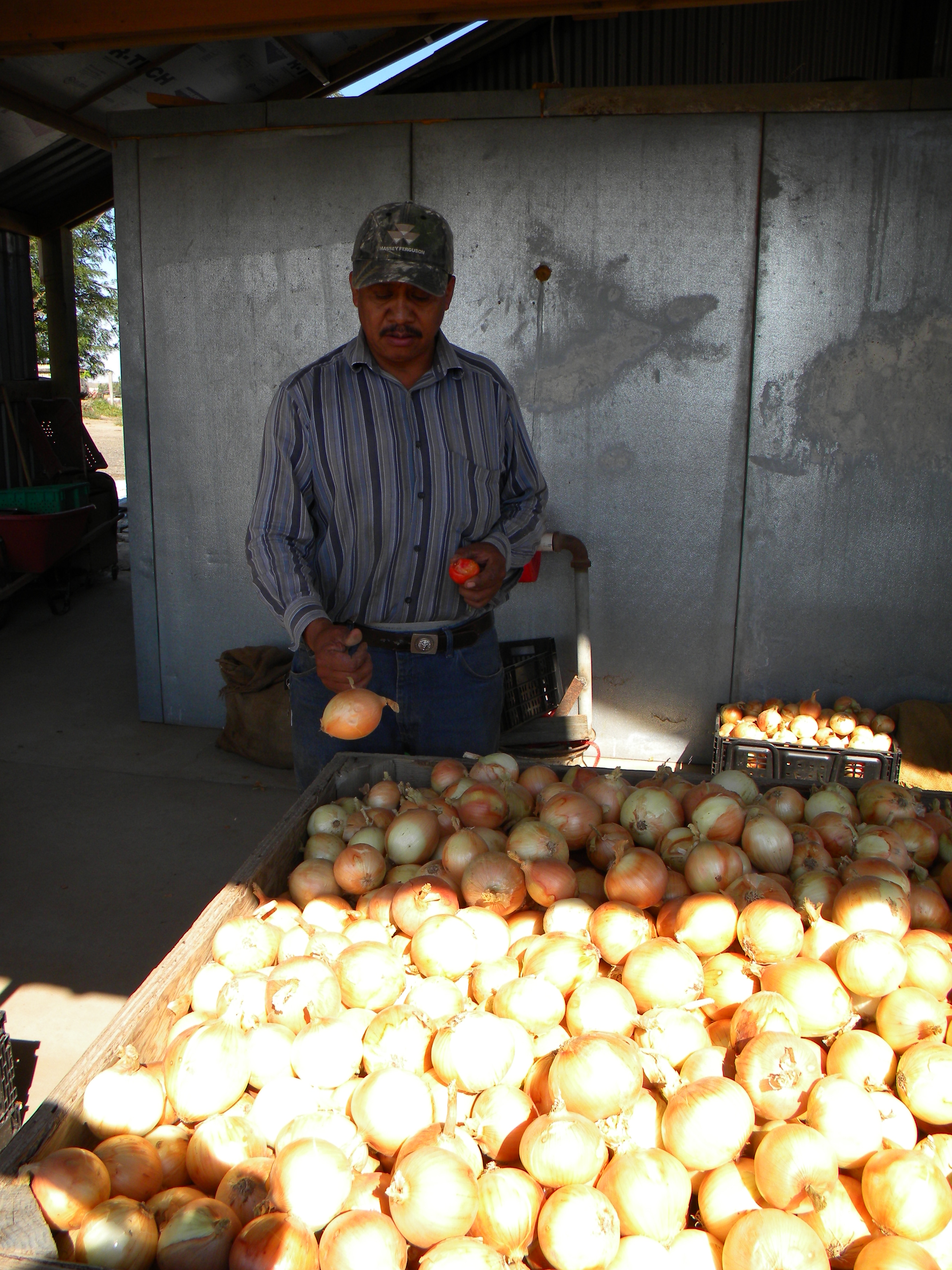Farmers
Information for Farmers
About Nutrition Services and Farm to School
Walla Walla Public School operates a Federal Child Nutrition Program under the US Department of Agriculture (USDA), including the National School Lunch Program (NSLP), School Breakfast Program, Fresh Fruit and Vegetable Program and Summer Food Service Program.
Walla Walla School District Nutrition Services Department prepares and serves over 4,000 meals per day. That’s over 720,000 meals in a 180 day school year. An additional 700-800 meals are served each day during the summer for the City Summer in the Park program. The food budget to accomplish this is approximately $890,000. The school district would like to keep as much of this money in the local economy as possible.
According to the National School Lunch Act, USDA encourages schools to purchase unprocessed locally grown or locally raised agricultural product to the maximum extent practicable and appropriate.
The Farm to School program is connecting with area farmers to purchase local, seasonal produce which is highlighted in the Harvest of the Month program or on special local meal days in the cafeterias. In addition, the school would like to incorporate local produce into regular school meals, and salad bars, summer meals and the fresh fruit and vegetable program.
The program also strives to educate students and the community about food, farming and agriculture through farm field trips, school gardens and special cooking events, and informational fliers.
Selling Produce to the School District
If you’re interested in selling produce to Walla Walla Public School, please contact Beth Thiel, Farm to School Coordinator at bthiel@wwps.org or Pamela Milleson, Nutrition Services Director at pmilleson@wwps.org. Below is a list of vendor qualifications to sell to Walla Walla School District.
Primary qualifications:
- Product liability Insurance for at least $1M
- Completed Farm Food Safety Questionnaire – with no obvious or outstanding safety concerns
- Completed Vendor Information Questionnaire
- Ability to submit invoice for payment process
- Ability to deliver to District Warehouse (1174 Ently) on most occasions
- Providing food grown in our local I (within 75 miles), local II (within 150 miles) or regional (grown in WA, OR, or ID) area
- Can provide a W-9 form (Taxpayer ID number and certification)
Secondary qualifications:
- Interested and able to visit schools and/or host a farm field trip
- Ability to communicate electronically and provide current produce cost (fresh sheet)
- Ability to provide produce packed in boxes for each school to eliminate the need to repackage
Downloads:
Types and Amounts of Produce of Interest
– The Farm to School program is constantly working to update information about vendors and product availability. Having current information will help enormously in the ability of the district to purchase locally grown foods. Please help us update our information by indicating the products on this product questionnaire that you would consider selling to the school district (taking the minimum amount required into consideration), the months they are available and whether you would consider quoting for a forward contract for that product or whether you could provide fresh sheet for price comparison, closer to harvest.
About Our Farmers
Learn more about a few of the local farmers that we have worked with.
Ron Lefore Apple Farm
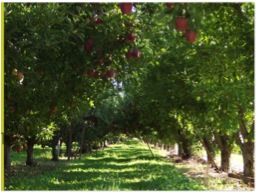 Ron LeFore Apple Farm is a family-owned and operated orchard and packing house that has been producing and packing some of the Northwest's finest apples for over 60 years.
Ron LeFore Apple Farm is a family-owned and operated orchard and packing house that has been producing and packing some of the Northwest's finest apples for over 60 years.
Farming has been the way of life for generations of LeFores, starting with 2 brothers who left their fruit stands in the Ukraine to try their hand at farming in America. Renting orchards and peddling fruit finally brought the LeFore brothers to a small valley in the Blue Mountains of Eastern Oregon where the growing conditions were just what they had sought.
In 1946, Grandpa "Bear" LeFore bought a small orchard and with a horse drawn plow, planted his first apple trees.
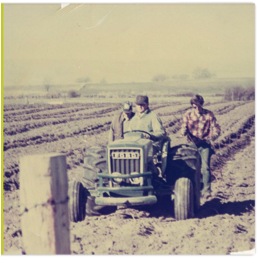 Today, LeFore Apple Farms has become over 100 acres of hand planted trees that produce 7 varieties of apples.
Today, LeFore Apple Farms has become over 100 acres of hand planted trees that produce 7 varieties of apples.
LeFore apples are handpicked from the tree and shipped to customers all over the globe.
Throughout the year, the trees and apples are continually monitored and special care is taken to keep the trees healthy and the apples in optimal condition. Upon harvesting, the apples are washed, waxed with a natural carnauba wax, hand sorted, sized, and packaged. The apples are then moved into cooling rooms and can be shipped within days of harvest.
About 2,500 known varieties of apples are grown in the United States and more than 7,500 varieties are grown worldwide.
LeFore Farm packs approximately 175,000 boxes annually and ship to both domestic and international customers. Growing, packing, and shipping their apples on their farm helps to guarantee freshness.
Ferrel Farm and Blue Mountain Seed
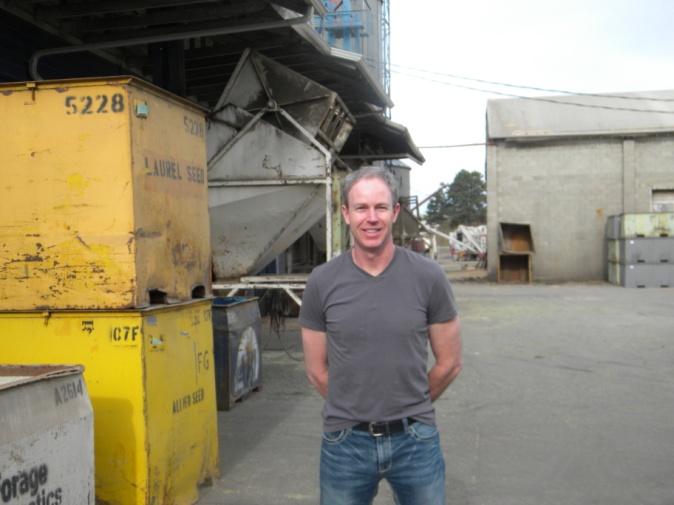 The Ferrel family started farming in the Walla Walla Valley in 1864. Today, Greg and Gary Ferrel are the 5th generation to be involved in the family farm. Greg Ferrel farms the land, growing dry land wheat in rotation with garbanzo beans. Gary Ferrel manages a garbanzo bean and dried pea processing plant started in 1991 called Blue Mountain Seed.
The Ferrel family started farming in the Walla Walla Valley in 1864. Today, Greg and Gary Ferrel are the 5th generation to be involved in the family farm. Greg Ferrel farms the land, growing dry land wheat in rotation with garbanzo beans. Gary Ferrel manages a garbanzo bean and dried pea processing plant started in 1991 called Blue Mountain Seed.
They didn’t always grow garbanzo beans. In fact, when the family started growing garbanzo beans, they were one of a handful of farmers to experiment with the crop 25 years ago.
They plant the seeds in late April or early May and harvest chickpeas in early to late August. If the plants and beans don’t suffer damage from storms, the Palouse climate and soils provide high yields. Washington State is the largest producer of chickpeas in the nation.
Chickpeas do best with about 16 to 18 inches of rainfall a year. But they also have a strong taproot that can extract water up to 6 feet down in the soil. Chickpeas have less bug problems than dry peas. Ferrel said he has only sprayed three times for bugs in 25 years with the chickpeas.
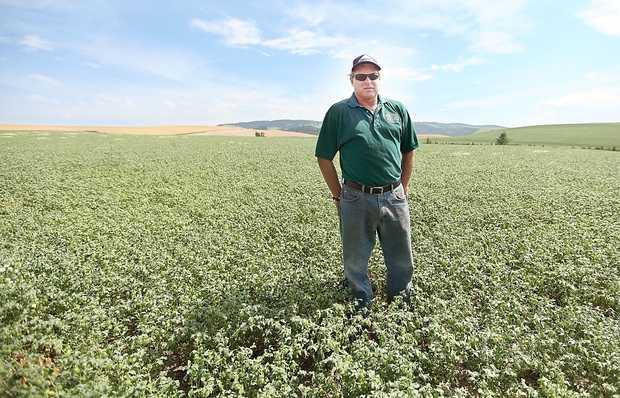 The Ferrel family grew peas for many years and diversified into garbanzos in the 1980’s. The Blue Mountain Seed Company started in 1991 which processes and exports dried peas and garbanzos grown on the Ferrel Farm as well as others within a 30 mile radius –from Milton Freewater to Dayton.
The Ferrel family grew peas for many years and diversified into garbanzos in the 1980’s. The Blue Mountain Seed Company started in 1991 which processes and exports dried peas and garbanzos grown on the Ferrel Farm as well as others within a 30 mile radius –from Milton Freewater to Dayton.
Blue Mountain Seed Company exports beans to many regions of the world, California purchasing the most within the US. Internationally, Spain is their number one buyer, followed by Australia and India.
The garbanzo beans used to make the hummus for March 2013 Harvest of the Month came from Blue Mountain Seed Company.
Key Farms
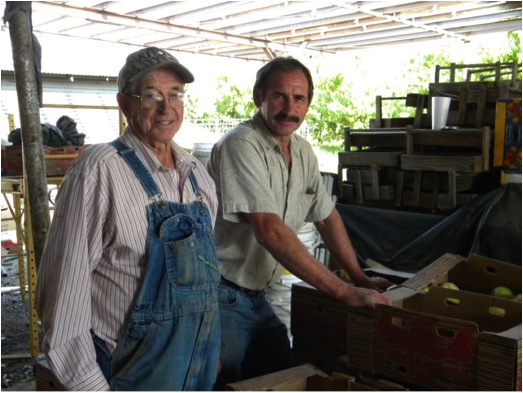 When you talk to Mr. Key you get the feeling he has so much information in his head that it might start spilling out of his ears. His knowledge of agriculture is not limited to the stone fruits that he mostly grows now. He has background experience in raising everything from cattle to cucumbers. He has been making his own way in business since he was 13.
When you talk to Mr. Key you get the feeling he has so much information in his head that it might start spilling out of his ears. His knowledge of agriculture is not limited to the stone fruits that he mostly grows now. He has background experience in raising everything from cattle to cucumbers. He has been making his own way in business since he was 13.
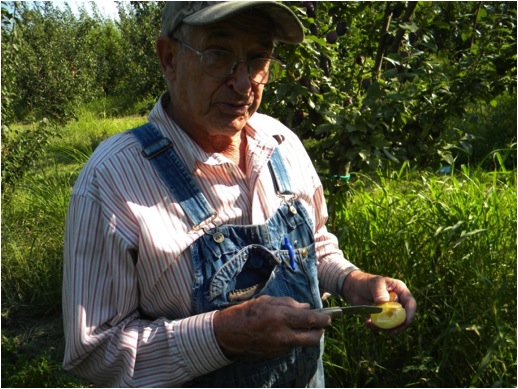 Now he annually produces 150 tons of fruit which he stores in several refrigerated storage buildings he constructed including the converted barn his grandfather built in 1920. He sells all of his fruit directly to consumers through farmer’s markets in Walla Walla, Pendleton, LaGrande and Pasco allowing him to receive more money per pound of fruit than if he sold to a distributor or grocery store.
Now he annually produces 150 tons of fruit which he stores in several refrigerated storage buildings he constructed including the converted barn his grandfather built in 1920. He sells all of his fruit directly to consumers through farmer’s markets in Walla Walla, Pendleton, LaGrande and Pasco allowing him to receive more money per pound of fruit than if he sold to a distributor or grocery store.
Mr. Key grows 8 varieties of plums, 3 varieties of apricots 12 varieties of peaches and 6 varieties of pluots (the cross between plum and apricot). He has such a variety that there are different fruits coming ripe at different times from July through September.
Filipe Jimenez Farm
It can be difficult to start farming on your own without inheriting the family business or receiving help to purchase equipment. Mr. Jimenez started his own farm after years of working on other people's farms.
He started working on area farms in 1985. He worked very hard and learned a lot about farming certain crops. After 22 years of working on other farms, he bought his own. He started with only ½ acre in production. Now he farms 50 acres of land.
Jimenez Farm produces onions, asparagus, garlic, potatoes and green beans. Two gardens also provide tomatoes, peppers, corn and squash, including a special variety of squash from Guatemala.
Farmers are always trying new things to improve their crop and Mr. Jimenez is no different. Farmers experiment with the timing of planting, the amount of watering, the amount of nutrients and new methods to control pests.
The Jimenez family sells directly to consumers through farmers markets in Walla Walla, Pendleton and Tri-Cities.
The schools have enjoyed asparagus, onions and green beans from the Jimenez Farm.
Welcome Table Farm
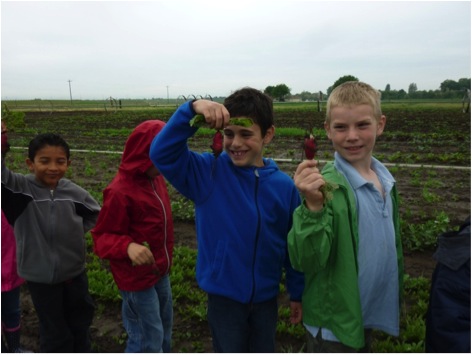 At Welcome Table Farm our passion for farming comes from "growing the food we eat" -- literally providing for our own needs as well as nourishing our community. The full diet of foods we cultivate include vegetables, grains, eggs, perennial fruits and nuts, and pasture raised meats. The farmers of Welcome Table Farm strive to make healthy, local food accessible through direct customer sales, work trade options and donations to hunger relief organizations.
At Welcome Table Farm our passion for farming comes from "growing the food we eat" -- literally providing for our own needs as well as nourishing our community. The full diet of foods we cultivate include vegetables, grains, eggs, perennial fruits and nuts, and pasture raised meats. The farmers of Welcome Table Farm strive to make healthy, local food accessible through direct customer sales, work trade options and donations to hunger relief organizations.
As farmers, we take our responsibilities as ecological stewards seriously. We farm using organic practices, without the use of synthetic pesticides and fertilizers. We build soil health through crop and animal rotations, cover cropping, compost, and natural soil amendments. We are working to minimize non-renewable and polluting energy use by effectively employing the skill and draft power of people and animals.
We invite you to join our farm community. Visit us at the Farmer's Market. Join as a member of our Community Supported Agriculture (CSA) program. Lend a hand in the field. Attend a farm tour. Dine on the farm at one of the Farm Feast seasonal meals. Celebrate at the end of the year Hoe-Down.
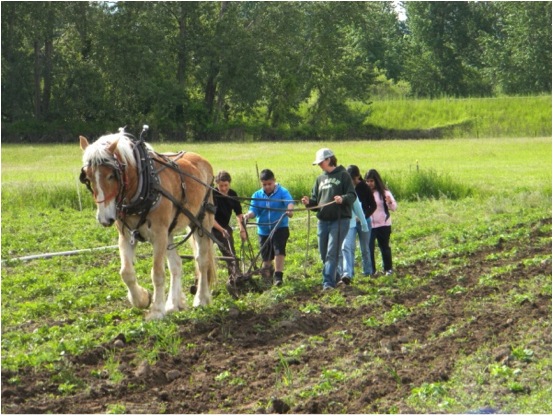 3 ROOTS
3 ROOTS
Welcome Table Farm provided the potatoes, carrots and rutabagas being served October 18th 2012, for school lunch as the Harvest of the Month.
Potato Mix: Red Pontiacs, White Russets, and Purple Peruvian
Carrot Mix: orange Yaya and red Dragon
About the Horses
Avi and Dandy, both 9 years old, are registered American Belgians from The Madder's Family Farm, in Halfway, OR. Here at Welcome Table Farm they provide incredible heart, drive and draft to our daily work. In harness they plow, disk, harrow, cultivate, and pull loads.
Schreiber & Sons Farm
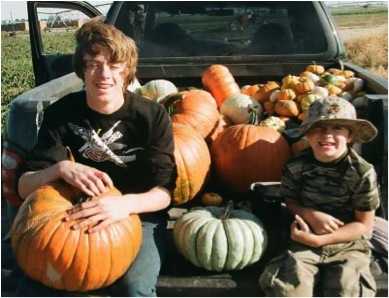 Schreiber & Sons Farm has provided sweet winter squash to WW School District in the past which was roasted and served in every school in 2012. They also provided bell peppers in the fall of 2013 for the salad bar and Taste WA Day. This Farm is located 16 miles north of Pasco.
Schreiber & Sons Farm has provided sweet winter squash to WW School District in the past which was roasted and served in every school in 2012. They also provided bell peppers in the fall of 2013 for the salad bar and Taste WA Day. This Farm is located 16 miles north of Pasco.
Alan Schreiber grew up in Missouri on a farm with only three crops: corn, soybeans and alfalfa. He received his PhD in entomology and worked as a researcher and professor for Washington State University.
When Alan went back to his roots to become a farmer, he stayed in Washington State. Alan has always been amazed at the diversity of crops grown in this area. In 1998, Alan and his wife, Tanya started on a 100-acre farm near Eltopia, to complete research on 30 farm crops. In 2004, Schreiber & Sons was established to grow and market certain crops including okra and over 30 varieties of eggplant.
A large portion of the crop went to upscale restaurants in Western Washington and Oregon. In 2006 a group of locals asked them to grow fruits and vegetables and Schreiber & Sons CSA was formed. They were pleased to meet this demand and added 40 more crops to their farm. They found that most items grew surprisingly well in our area! Since then they have continued to add crops, and now grow over 300 different fruit and vegetable varieties at the farm.
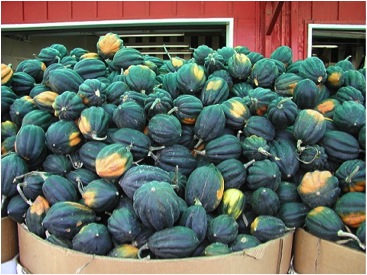 Alan's sons spend as much time as they can working with their dad on the farm and have even set up their own vegetable stand on occasion.
Alan's sons spend as much time as they can working with their dad on the farm and have even set up their own vegetable stand on occasion.
The Schreiber and Sons motto is “Pick fresh, eat seasonal, buy local and grow healthy.”
Locati Farms
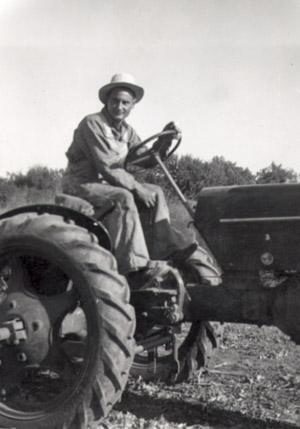 The Locati Family has been farming in the Walla Walla Valley since the early 1900s. The first Locati brothers to settle in the valley grew a variety of vegetables on a truck farm.
The Locati Family has been farming in the Walla Walla Valley since the early 1900s. The first Locati brothers to settle in the valley grew a variety of vegetables on a truck farm.
The Walla Walla Sweet Onion is the Washington state vegetable. The Locati family was among the first to plant onions in the valley and to develop this exceptionally sweet onion, now known around the world.
Today, Bud and Michael Locati carry on the family farming tradition in the valley growing onions, asparagus, wheat, dry peas, seed beans and seed corn. The onions and asparagus are sold directly to restaurants and to consumers through farmers markets.
Together, the Locati brothers own 10 acres of asparagus. It takes up to 3 years for asparagus crowns to develop enough to begin producing shoots, but once they do, they can produce for up to 20 years.
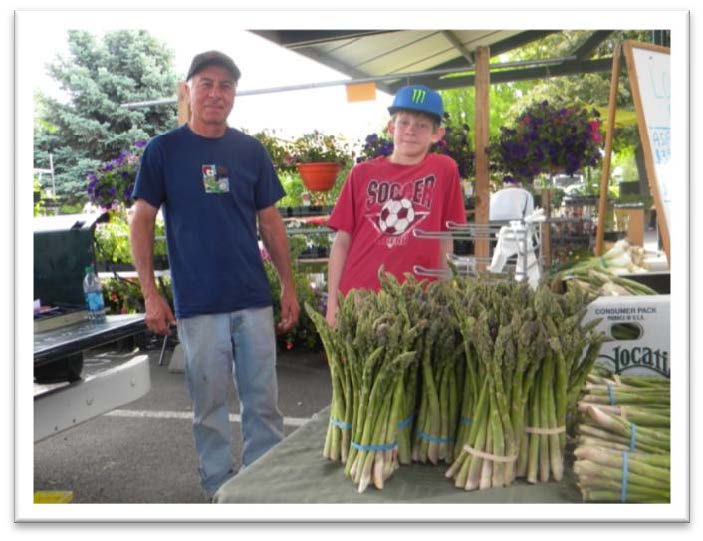 At one time, the Locati’s grew 85 acres of asparagus and sold to packing houses in the region, for export. National agricultural trade agreements caused the asparagus market to decline, but several local growers maintained some acreage in asparagus to feed the local market.
At one time, the Locati’s grew 85 acres of asparagus and sold to packing houses in the region, for export. National agricultural trade agreements caused the asparagus market to decline, but several local growers maintained some acreage in asparagus to feed the local market.
Healthy eating trends have increased demand for asparagus everywhere. According to the WA Asparagus Commission, more new asparagus fields were planted in the last two years, than in the past decade. Thankfully Walla Walla remains one of the prime areas to grow Asparagus.
Fun Farm Fact: You may think that 'truck farm' is a farm close enough to urban centers that its produce may be transported by truck to the city. However, long before motorized vehicles, as far back as 1785, - the word 'truck' was used to mean garden vegetables intended for sale in the markets, originating from the root word, 'troque,' the Old French word for 'barter.'
R and R Produce
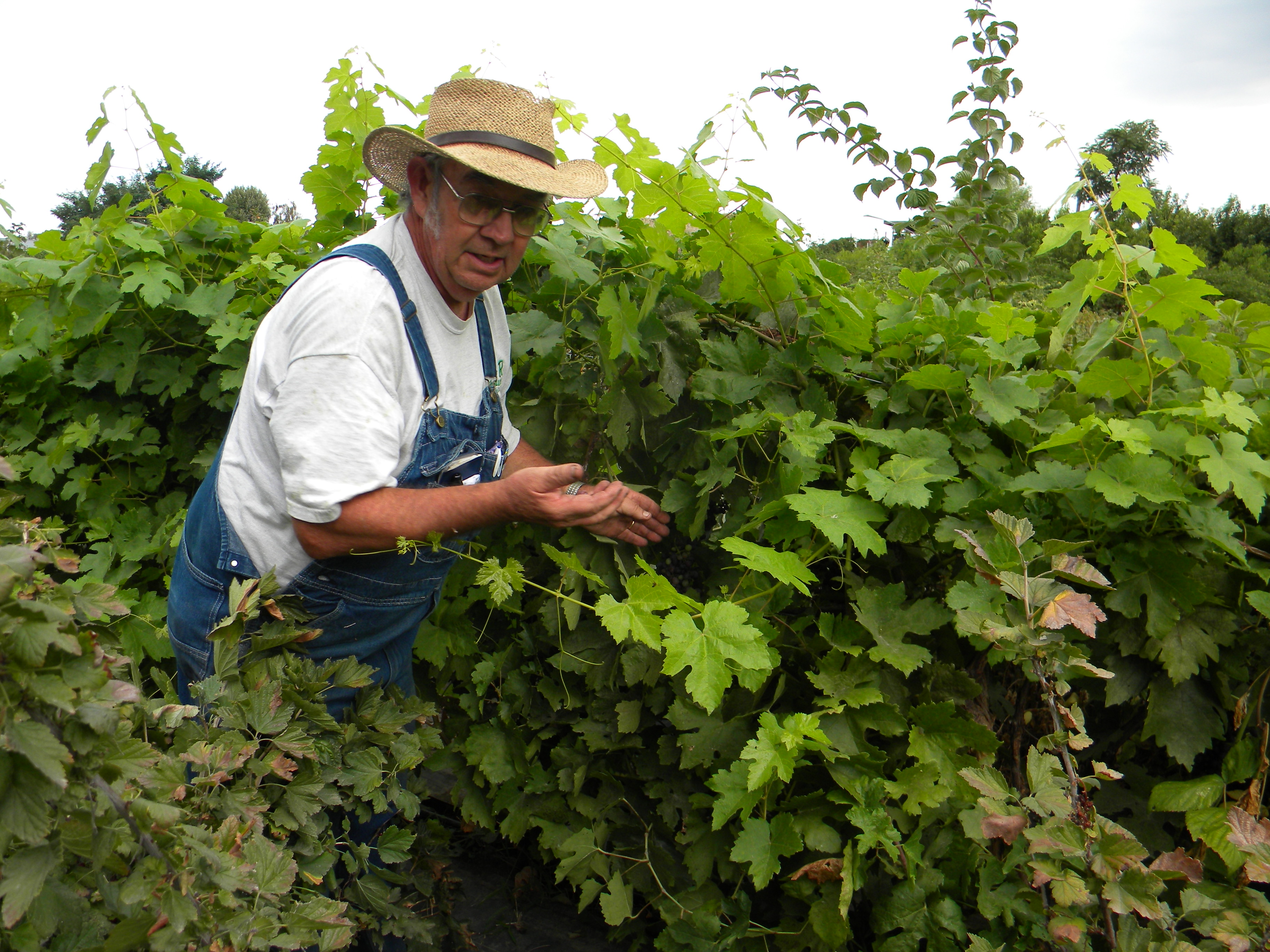
When Ron retired after 40 years of construction work, he didn't stop working; he became a farmer on the property where he had grown up.
When he started, Ron was no stranger to growing food. His father had been a pecan farmer from Georgia before moving to Walla Walla. Ron grew up on the property when it was planted with asparagus, cherry and apricot trees. They also had chickens and a cow and made their own butter!
Here is Ron checking the ripeness of his grapes. He is one of the few farmers in our region growing grapes to eat! Thanks Ron!
R & R Produce creates an enormous amount of food on just 6.5 acres of land. The home piece is just 2.6 acres and contains mostly fruit including currants, raspberries, strawberries, blackberries, grapes and peaches as well as tomatoes and cucumbers.
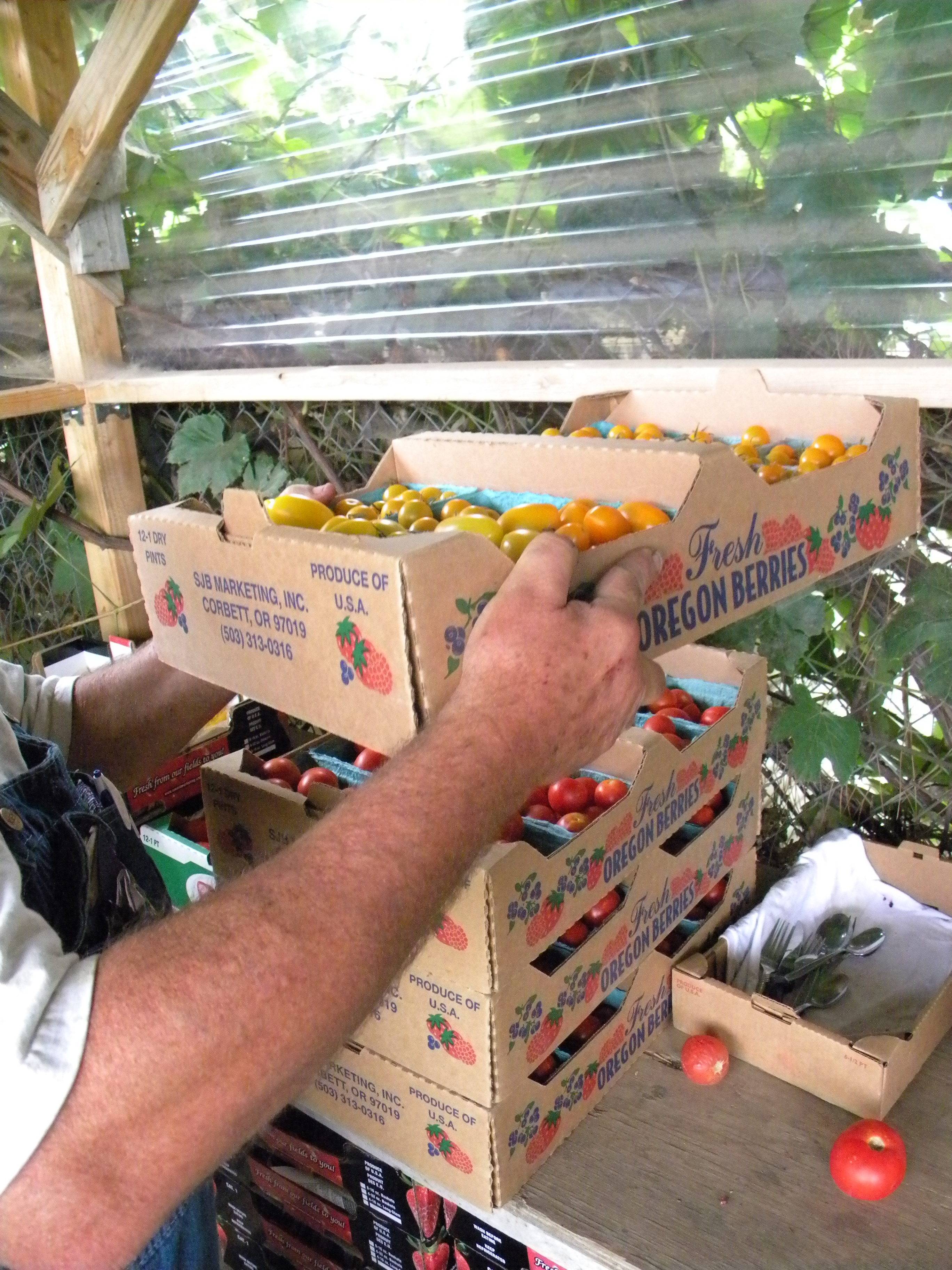
R & R Produce – 6.5 acres growing:
Rhubarb, melons, gooseberries, currants, grapes, strawberries, raspberries, blueberries, and blackberries, cherries, apricots, peaches, nectarines, pluots, apples and pears.
Tomatoes, cucumbers, summer squash, winter squash and green beans among other things.
West End Farm
Bob Biles has lived at West End Farm since 1975 when he purchased the land with 3 of his friends and began farming and building the house where he would live. They all wanted to grow their own food to provide for themselves and others.
Over time, the friends left to do other work, but Bob has remained at the 4 acre West End Farm on Wallula road, just outside Walla Walla for over 30 years.
The butternut squash being served for January Harvest of the Month was grown at West End Farm.
Bob feels it is important to keep the best agricultural soil open for future farmers. "When I first moved to this land, it was surrounded by Italian truck farms. Now it's surrounded by houses."
Now Bob farms the land part time for enjoyment and extra income. He also allows others interested in farming, a space to try it out.
Bob figures it takes 120 hours/week during the busy months to make a living growing and selling produce.
Besides winter squash, the farm has grown peppers, egg plant, salad greens, tomatoes, kale, and flowers.
He sells what he grows at the farmers market, to restaurants, through community subscription agriculture (CSA), and to schools including Whitman College.

